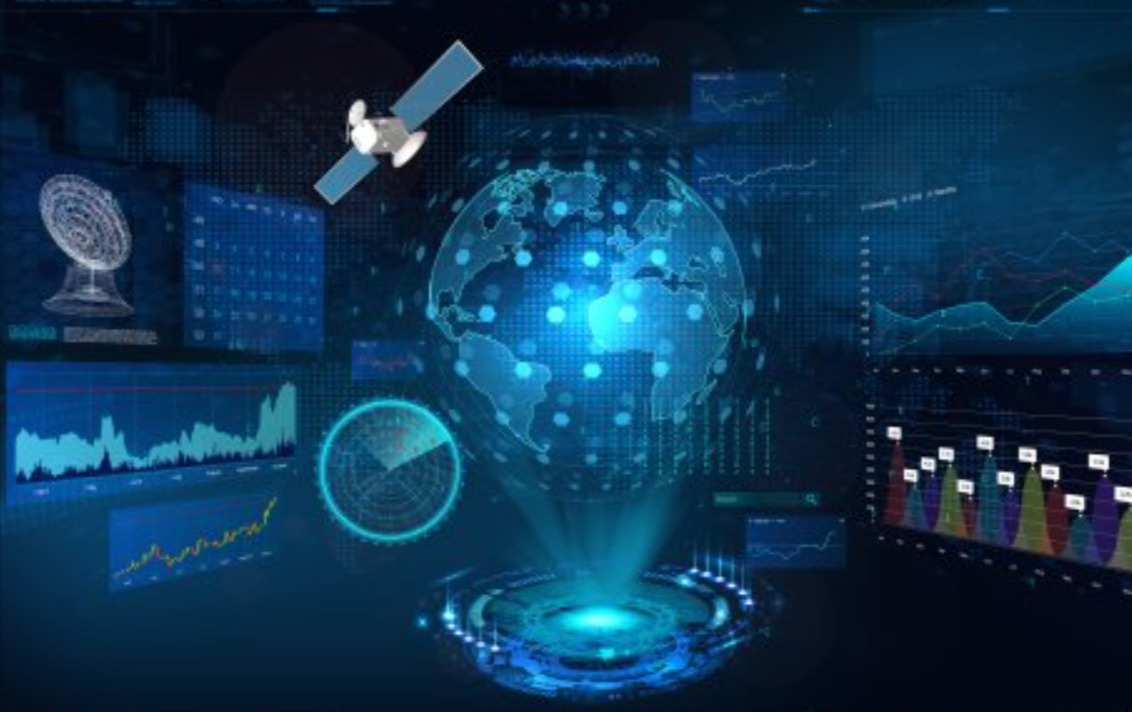Fascinating Technology In today’s ever-changing world, technology has a profound impact on our society. Artificial intelligence (AI), renewable energy and other innovative technologies are revolutionizing industries and changing the way people live, work and interact. This article examines ten fascinating technologies that are shaping the world and leading us to a better future.
Fascinating Technologies
1. Artificial Intelligence (AI).
AI is an integral part in computer science. It aims to create intelligent machines that can perform tasks which require the intelligence of humans. This remarkable technology is revolutionizing many industries, such as healthcare, finance and transportation.
AI can analyze large amounts of data to extract valuable insights and make informed decision. AI systems can automate processes and improve efficiency by utilizing machine learning and natural-language processing techniques.
2. Blockchain
Blockchain is becoming more popular across all industries. Blockchain is a decentralized and distributed ledger technology that provides a transparent and secure method for recording and verifying transaction, making data manipulation virtually impossible. This technology eliminates intermediaries and increases efficiency, reduces costs, fosters trust, and decreases costs.
Blockchain is used in more than just cryptocurrencies. It can be applied to secure supply chains, transparent voting systems and digital identity verification. Blockchain’s disruptive potential holds great promise in revolutionizing industries at a global level.
3. Internet of Things (Iot).
Internet of Things (IoT) is a network of interconnected physical devices that are embedded with software and connectivity. These devices exchange and collect data to enable interaction with other devices and the environment. IoT can transform industries like healthcare, manufacturing and transportation.
Integrating IoT devices allows organizations to improve operational efficiency, monitor and control processes remotely, and make better decisions through real-time analytics. The IoT offers new possibilities. It transforms our homes into smart environments. Cities become sustainable hubs. And industries are interconnected.
4. Augmented Reality and Virtual Reality
Virtual Reality and Augmented Reality are immersive technologies which blend the virtual with the physical world. AR overlays digital data onto the real-world, improving our perception and interaction. VR, on the other hand, creates artificial environments that transport users into virtual realms.
The technologies are used in many sectors including education, gaming, and healthcare. AR and VR provide immersive entertainment, interactive learning, and realistic simulations. AR and VR have transformed industries and are pushing the boundaries.
5. 3D Printing
The 3D printing technology, also called additive manufacturing, allows the creation of three-dimensional designs from digital files. 3D printing is a layer-by-layer process, unlike traditional manufacturing methods that use material subtraction.
This technology opens up new possibilities for prototyping and customization. It can even be used in healthcare. Prototypes can be produced quickly, which reduces time-to market and fosters innovation. In the healthcare industry, 3D printers can be used to create patient-specific implants and prosthetics.
6. Renewable Energy
Renewable energy sources have been developed in response to the escalating demand for energy worldwide and the urgency of addressing climate change. Solar and wind energy are gaining ground, providing cleaner and more sustainable options to fossil fuels.
Solar energy has seen remarkable advances in photovoltaic technologies, making it more cost-effective and efficient. Wind energy generated by windmills has also become a viable option for electricity generation. Renewable energy technologies are a great way to reduce carbon emissions and create a sustainable future.
7. Quantum Computing
Quantum computing uses the principles of quantum physics to process information fundamentally differently than classical computers. This revolutionary technology can solve complex problems faster than conventional computer systems.
Quantum computers use quantum bits (or qubits), which are capable of existing in multiple states at once. They can perform complex calculations with incredible speed and efficiency. Quantum computing can transform industries like drug discovery, encryption, and optimization by offering solutions to previously insoluble problems.
8. Biotechnology
Biotechnology is the application of biological knowledge to practical applications. It has led to breakthroughs in medicine and agriculture as well as environmental conservation. Biotechnology, from gene editing to synthesized biology, has the potential to revolutionize healthcare, increase crop yields and address environmental issues.
CRISPR Cas9 and other advances in gene editing have opened up possibilities for precise genetic manipulation, which could lead to cures for genetic disorders. Biotechnology allows for the creation of genetically altered crops that have improved traits. This increases food security, and reduces reliance on pesticides.
9. Robotics
Robotics is an inter-disciplinary field of science and technology that focuses on designing, developing, and implementing robots. These machines can perform tasks autonomously or semi-autonomously, either alone or with humans.
Robots are used in a wide range of industries, from manufacturing to healthcare and space exploration. They improve productivity, increase safety and perform tasks that humans find difficult or dangerous. Robots are becoming more versatile and capable with the advancement of artificial intelligence and sensors. They will shape the future and transform industries.
Conclusion
This article explores ten fascinating technologies that are transforming our world. Each of these technologies, from artificial intelligence to renewable energies, is revolutionizing industries. These technologies are evolving and present both opportunities and challenges.
Future advancements of these technologies are boundless, but ethical and responsible implementation is key. We can make the future more sustainable, interconnected and benefiting for everyone by harnessing these technologies.
